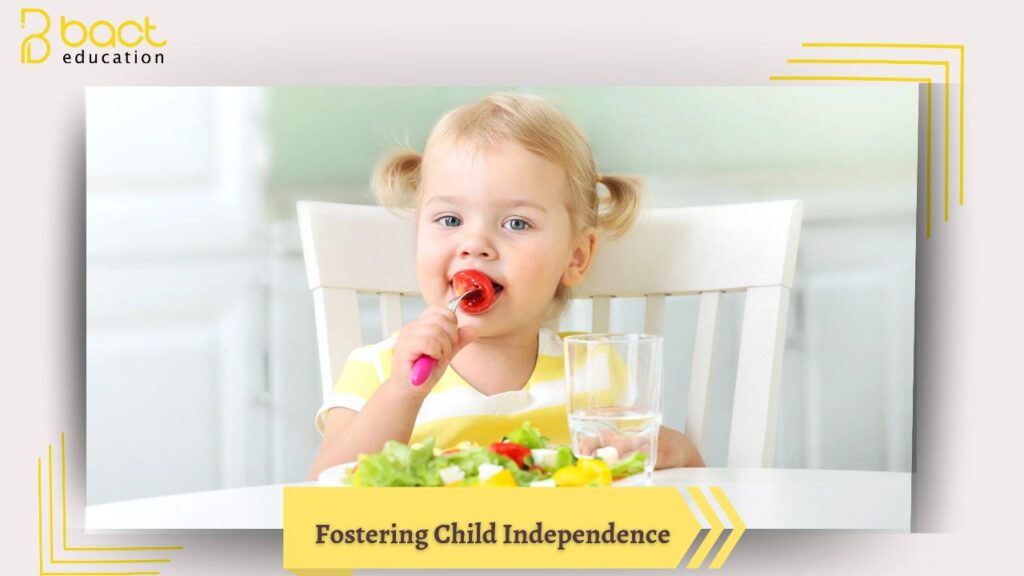Practical Steps to Encourage Self-Reliance in Children**
**Introduction:**
In a world of rapid challenges and increasing complexity, the goal of parenting is no longer just about providing protection for children, but about preparing them to be independent individuals, self-confident, and capable of facing life’s difficulties. Developing self-reliance in a child is not a luxury, but an educational necessity that prepares them to take responsibility and make sound decisions in the future.
**Why is Self-Reliance Important?**
1. **Building Confidence:** The more a child succeeds in accomplishing a task on their own, the more their confidence in their abilities grows.
2. **Developing Life Skills:** Self-reliance teaches children essential skills like problem-solving, time management, and decision-making.
3. **Enhancing Psychological Resilience:** A self-reliant child learns how to deal with failure and frustration, making them more resilient and adaptable.
4. **Preparation for the Future:** A child accustomed to responsibility finds it easier to integrate into school, social life, and later, their professional career.
**How Can Parents Support Their Children’s Independence?**
1. **Start Early:** The seeds of independence can be planted at an early age. Encourage your child to dress themselves (even if they button their shirt wrong), tidy up their toys, or put their plate in the sink after eating.
2. **Offer Choices, Not Commands:** Instead of dictating what must be done, give your child limited choices appropriate for their age. Ask them: “Do you want to wear the red shirt or the blue one?” or “Would you prefer an apple or a banana?” This gives them a sense of control and teaches them decision-making.
3. **Be Patient and Allow Mistakes:** It might take a child longer to tie their shoes, and milk might spill while they try to pour it. Instead of quickly intervening to resolve the situation, be patient and encourage them to try again. Remember that mistakes are the best teachers.
4. **Break Large Tasks into Small Steps:** If you ask a young child to “clean your room,” the task may seem impossible. Instead, say, “Let’s start by picking up the blocks first, then we can arrange the books on the shelf.” This makes them feel a sense of accomplishment with each completed step.
5. **Encourage Problem-Solving:** When your child faces a problem, don’t rush to solve it for them. Instead, ask guiding questions like, “What do you think we could do?” or “What options do we have?” This develops their critical and creative thinking skills.
6. **Assign Age-Appropriate Chores:** A three-year-old can help set napkins on the table, while a ten-year-old can make a simple sandwich for themselves. Simple household chores build a sense of responsibility and belonging to the family.
7. **Praise the Effort, Not Just the Outcome:** Focus on praising the child’s attempt and perseverance, regardless of the result. Say, “I’m impressed by your perseverance in trying to tie your shoes!” instead of “Well done, the shoe is tied perfectly.” This teaches them that effort is the true path to success.
**Conclusion:**
Fostering a child’s independence is a cumulative journey that requires wisdom, patience, and great love from parents. It is a long-term investment in building a strong, balanced personality capable of navigating the sea of life with confidence and competence. When we support our children in becoming self-reliant, we not only lighten our own load but also give them the greatest gift: the gift of lifelong self-reliance.

